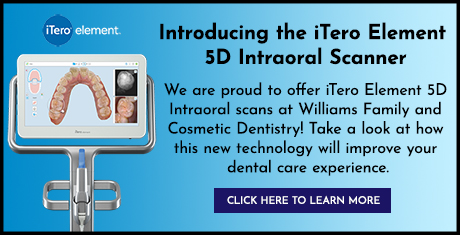Your periodontal health is important. When problems such as periodontal disease, or gum disease, develop in the mouth, they can be extremely detrimental to one’s oral health and wellness. Dr. Trevor Williams and his team at Williams Family and Cosmetic Dentistry in Brandon, Florida encourage patients to take the time to learn about ways to prevent gum disease and ensure healthy teeth and gums for many years to come.
What is periodontal disease?
Periodontal disease is an infection that develops in the mouth. It is completely preventable with proper oral hygiene habits every day between routine dental visits. It is one of the most common causes of tooth loss in adult patients, according to the ADA, or American Dental Association.
At Williams Family and Cosmetic Dentistry, we are excited to offer patients education on how to care for their smile, as well as information regarding the signs and symptoms of serious problems. Infection via periodontal disease can spread throughout the body and increase a patient’s risk of heart disease, strokes, diabetes, and other serious medical issues. With proper care, many patients can avoid this condition, maintain healthy teeth and gums, and reverse gum recession.
What are the signs of this condition?
Mild and moderate periodontitis can contribute to continued problems if not diagnosed and treated in the early stages, including:
- Shrinking gum tissues
- Loss of natural bone in the jaw
- Chronic bad breath (halitosis)
- Loose or lost permanent teeth
What can be done if I have been diagnosed with periodontal disease?
The first step is getting a definitive diagnosis. Once this occurs, patients can work with Dr. Trevor Williams to discuss the possible treatment options available. In most cases, a thorough cleaning of the teeth and gums with scaling and root planing will help address the problem, in addition to antibiotics.
Do not wait until you have tooth and bone loss
Be proactive about caring for your smile, especially if you suspect periodontal disease is present. Your periodontal health is essential to ensure a beautiful smile for life! Call Dr. Trevor Williams and his team in Brandon, Florida at (813) 560-0447 and visit at 510 Vonderburg Drive, Suite #211. His practice accepts new patients in and around the communities of Tampa, Apollo Beach, Plant City, Riverview, and Valrico, FL.
FAQs
These symptoms are mostly silent or appear later during the progression of the disease. Some common symptoms are red, swollen, or tender gums; pain in the mouth; bleeding during brushing and flossing; teeth looking longer as the gums recede or pull away from them; bad breath; mouth sores; loose or separating teeth; pus between gums and teeth; a change in the way teeth fit together during biting; and a change in the way partial dentures fit.
There have been many studies on the connection between periodontal disease and other systemic diseases, like heart problems, stroke, and diabetes. Researchers believe that this connection may be related to inflammation.
Plaque is the colorless, sticky coating that continues to form on the surface of your teeth. It contains bacteria that release acids which irritate the gums and lead to tooth decay. This irritation can eventually result in gingivitis and periodontal disease. If plaque is not regularly removed with brushing and flossing, it hardens into calculus (tartar) that can only be cleaned by a dental professional.
You can keep these problems at bay by caring for your teeth and gums. Brushing your teeth at least twice a day, or if possible after every meal, flossing at least once a day, and visiting your dentist twice a year are some of these steps.
t is an irreversible condition, which means if it has advanced beyond gingivitis and you are experiencing periodontal disease, there will be permanent effects, including tooth loss. Although not curable, it can be managed with a mixture of at-home and surgical therapies.



